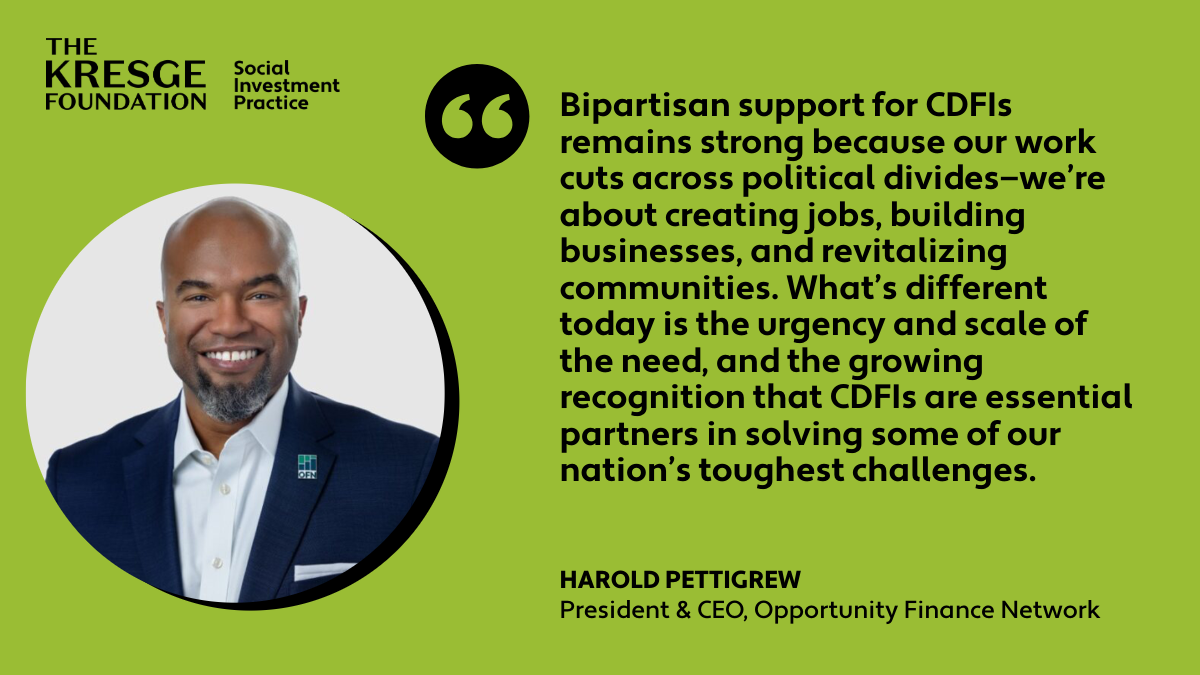- German economy shrinks slightly
- Germany set to suspend debt brake
- Finance minister wants significant “consolidation” in budget
- Economy minister compares debt brake to boxing match
- Majority of Germans oppose suspending debt brake – poll
Finance
Germany signals belt-tightening but no tax rises in budget compromise
/cloudfront-us-east-2.images.arcpublishing.com/reuters/NMDGOOF4X5ND5OSBXWKMGZYAKI.jpg)
German Finance Minister Christian Lindner attends the weekly cabinet meeting at the Chancellery in Berlin, Germany November 22, 2023. REUTERS/Fabrizio Bensch/File Photo Acquire Licensing Rights
BERLIN, Nov 24 (Reuters) – German Finance Minister Christian Lindner signalled the government would need to make savings worth a double digit billion euros to help solve a budget crisis, though data on Friday showed growth shrinking in Europe’s largest economy.
Lindner plans to lift self-imposed limits on borrowing and present a supplementary budget next week after a constitutional court ruling wiped billions from the federal budget and forced the government to freeze most new spending commitments.
The court ruling, which blocked the government from transferring pandemic funds towards green projects and industry subsidies, has sparked warnings that German companies could be starved of support to keep them globally competitive.
In order to keep backing industry, the fiscally hawkish Lindner ruled out tax rises and said savings would have to be found elsewhere, backed up by reforming the welfare state.
“We are talking about a significant additional need for consolidation,” Lindner told the Handelsblatt newspaper in an interview. “We are talking about double-digit billions, for example to implement the ambitious plans to renew the infrastructure and invest in technology.”
“In a phase of low economic dynamism, the aim must be to relieve the burden on citizens and companies,” he added.
Chancellor Olaf Scholz’s government is set to propose lifting the debt brake, which limits Germany’s structural budget deficit to the equivalent of 0.35% of gross domestic product, by proposing to parliament an “emergency situation” for 2023.
The brake, introduced after the global financial crisis of 2008/09, was first suspended in 2020 to help the government support companies and health systems during the COVID-19 economic fallout.
Lindner had been reluctant to suspend the debt brake mechanism as his party strongly advocates fiscal discipline but relented as the budget turmoil put more strain on Scholz’s fractious three-way coalition.
HANDS TIED IN A BOXING MATCH
The crisis has sparked calls for reforming the debt brake. Economy Minister Robert Habeck from the pro-spending Greens has criticised it as inflexible and as blocking vital support for industry to keep jobs and value creation from moving abroad.
To a standing ovation at a Greens party conference, Habeck questioned whether the debt brake was applicable in changed times from “when climate protection was not taken seriously, wars were a thing of the past, China was our cheap workbench?”
“With the debt brake as it is, we have voluntarily tied our hands behind our backs and are going into a boxing match. Is that how we want to win it? The others have horseshoes wrapped in their gloves and we don’t even have our arms free. It’s clear how that’s going to turn out.”
A poll by the broadcaster ZDF suggested only a minority of Germans, 35%, supported suspending the debt brake however, compared to 61% wanting it to stay in place.
Some 57% wanted the budget shortfall from the court ruling to be covered by spending cuts, 11% favoured tax increases and 23% wanted the state to take on additional debt.
Germany has been among the weakest economies in Europe this year as high energy costs, weak global orders and higher interest rates have taken their toll. Its economy shrank in the third quarter, data showed on Friday.
German business morale however improved for a third straight month in November, the Ifo institute said, adding there had been no impact for the time being from the court ruling.
“The question that naturally arises is whether the rise in the Ifo business climate index is merely a flash in the pan or marks a turn for the better? We don’t really want to believe it,” said VP Bank Chief Economist Thomas Gitzel.
Potential austerity measures resulting from the court decision “are not exactly contributing to greater confidence in future economic development,” added Gitzel.
Reporting by Holger Hansen, Christian Kraemer, Miranda Murray and Rene Wagner; writing by Matthias Williams; Editing by Toby Chopra
Our Standards: The Thomson Reuters Trust Principles.

Continue Reading
Finance
Dividend Stability and Regional Strength: The Case for Truist Financial (TFC)

Truist Financial Corporation (NYSE:TFC) is included among the 11 Best Bank Dividend Stocks to Buy.
Photo by Annie Spratt on Unsplash
Truist Financial Corporation (NYSE:TFC) is a prominent American commercial bank with a strong footprint in the Southeast and Mid-Atlantic regions. Ranking among the top ten banks in the country, it enjoys a solid market position in high-growth states like Florida and Georgia. Recently, the bank has prioritized digital innovation and technology development to improve service delivery and remain competitive against fintech firms.
Regulatory compliance remains a key focus for Truist Financial Corporation (NYSE:TFC), as it operates under enhanced prudential standards and capital requirements as a Category III banking organization. Adhering to these standards is essential for sustaining its operations and long-term strategies. At the same time, Truist’s disciplined approach to capital management allows it to maintain financial stability while pursuing strategic growth opportunities, including potential mergers and acquisitions.
Truist Financial Corporation (NYSE:TFC) is also popular among investors because of its dividend policy. The company has been making regular payments to shareholders since 1997. Currently, it offers a quarterly dividend of $0.52 per share and has a dividend yield of 4.53%, as of September 24.
While we acknowledge the potential of TFC as an investment, we believe certain AI stocks offer greater upside potential and carry less downside risk. If you’re looking for an extremely undervalued AI stock that also stands to benefit significantly from Trump-era tariffs and the onshoring trend, see our free report on the best short-term AI stock.
EAD NEXT: 12 Best Stocks to Buy Now for Passive Income and 12 Best Retail Dividend Stocks to Buy Now
Disclosure: None.
Finance
Financing opportunity: Q&A with Harold Pettigrew on the future of the CDFI Sector – Kresge Foundation

As the community finance field enters a new era—shaped by economic uncertainty, shifting capital flows, and growing calls for accountability—how can CDFIs prepare for what’s ahead? The Kresge Foundation spoke with Harold Pettigrew, the president and CEO of the Opportunity Finance Network (OFN) to help answer that question. This article is part of a series highlighting the impact of CDFIs and how the sector is adapting to the current environment.
MD: CDFIs play a unique role in our financial ecosystem, often serving communities that mainstream banks overlook. Why are CDFIs so critical for advancing economic growth and creating opportunities in underserved communities?
HP: In every corner of America, CDFIs show that impact and financial performance aren’t at odds—they reinforce each other. We address market gaps and go where traditional capital doesn’t: listening first, solving for need, and providing capital to people and financing projects that strengthen families and communities. Whether it’s a small business on Main Street or a housing development in a rural town, CDFIs make investments that build wealth and create opportunities that reach people and communities that need it most.
MD: CDFIs seem to have broad support in Congress, even when some administrations have looked to reduce funding or support. Is bipartisan support materially different today? What role has OFN played in telling the CDFI story and maintaining that support?
HP: Bipartisan support for CDFIs remains strong because our work cuts across political divides — we’re about creating jobs, building businesses and revitalizing communities. What’s different today is the urgency and scale of the need, and the growing recognition that CDFIs are essential partners in solving some of our nation’s toughest challenges. OFN and CDFIs tell real stories of impact—stories of people across the country whose lives and livelihoods have changed thanks to the capital provided by CDFIs. Through advocacy, research, and direct engagement with policymakers, we’ve elevated a clear, consistent message: For over 30 years, CDFIs have delivered results addressing market gaps in providing access to capital to communities across the country.
MD: Beyond federal funding concerns, what are the current challenges and needs CDFIs are facing in their day-to-day efforts to support communities?
HP: CDFIs are navigating a complex economic environment— rising interest rates, tighter capital markets, and growing community needs are stretching our resources like never before. Many CDFIs are being asked to do more with less, while also investing in their own operations to scale effectively and sustainably. OFN is working to develop diverse pools of flexible capital, make deeper investments in talent and technology, and new policy frameworks that support and recognize the unique value CDFIs bring. The demand is clear — what’s needed now is bold investments to meet the moment and craft new solutions for the future.
MD: Philanthropies and community development departments of banks and insurance companies have always been crucial partners for CDFIs — how can they best support and invest in CDFIs right now?
HP: Our partners in philanthropy and financial services have been critical to the success of CDFIs, and now they have a critical opportunity to strengthen the CDFI industry for the future. That means moving beyond transactional grantmaking to long-term, trust-based partnerships. It means offering flexible, risk-tolerant capital that lets CDFIs innovate and expand, and it means investing in the infrastructure — people, systems, data — that helps us operate at scale.
MD: What keeps you optimistic about the future of the CDFI sector?
HP: What keeps me optimistic is the impact and commitment I see every day, from the entrepreneurs we finance, to the communities we serve, to the CDFI leaders innovating with courage and conviction. The sector is growing, diversifying and deepening its impact. We’re not just responding to the moment — we’re helping define the future of expanded access to finance and financial services. And with every new loan, every new partnership, every life changed, we’re proving that when we expand access to opportunity — we don’t just finance projects, we shape the future of communities across the country.
Harold Pettigrew is the President and CEO of Opportunity Finance Network (OFN)
Finance
Reimagining Finance: Derek Kudsee on Coda’s AI-Powered Future

Derek Kudsee is a veteran of the enterprise software industry, with senior leadership roles at industry giants such as SAP, Salesforce, and Microsoft under his belt. So, when he took the helm as the new Managing Director for Unit4 Financials by Coda, ERP Today sat down with Kudsee to discuss his vision for Coda, the promise of agentic AI to make work feel lighter for finance teams, and his mission to transform the classic system of record into a dynamic system of intelligence for the Office of the CFO.
What was it about the opportunity at Unit4, and specifically the challenge of modernizing Coda, that convinced you to take this role?
A rare combination of having a deeply trusted platform and a clear opportunity to reimagine the finance function drew me to Unit4, and specifically the Coda business. Some of the largest enterprise customers have been running on this platform for decades. I’ve been brought in to help these finance teams run more efficiently and provide greater insight through agent-driven automation. We live in a world where technology has converged in our consumer and professional lives. Therefore, modernization is not only about addressing complex systems, but also about enhancing the user experience. This combination of running a deeply trusted platform, reimagining its capabilities in an AI-driven world, and modernizing the user experience was attractive.
Unit4 Financials by Coda’s goal is to deliver an “AI-fueled office for the CFO” using agentic AI. How will a finance team using Coda experience this in their day-to-day work?
When one thinks of an AI-fueled Office of the CFO, it’s about having agents deep inside those finance processes that will suggest, explain, and act within guardrails that finance teams can set. The work should feel like the machine is performing tasks that were previously done manually or laboriously.
A simple example is in an accounts payable department. An agent can automate everything from invoice capture using AI-driven OCR, verify that the invoices are within policy, queue them for approval, send them to the respective individuals, and flag exceptions along the way. Users can see how the work feels lighter because the machine handles everything from capture to the final stage, including payment release.
How do the AI functionalities offered by Coda differ from what competitors are offering right now?
Many vendors today have a finance module. However, we aim to be the best standalone financial management system, not a generic suite. We’re not trying to be finance because we want to sell an HR or CRM system. That means we need to embed intelligence deeply within the finance processes so that the software acts, takes action, and performs activities for the finance function. For that, the agentic AI needs to operate with autonomy, understand financial context, and learn from user behavior.
Moreover, fundamentally, Coda has always been built on a unified financial model. We’ve never had Accounts Payable separate from Accounts Receivable that needed to be consolidated. Our AI works on clean, structured data from day one, and that’s the foundation for accuracy. We don’t need to chase hype to incorporate AI. We’re going to redefine the finance function with AI at its core.
How do you plan to balance the introduction of these cutting-edge innovations without disrupting the core stability that Coda is known for?
The safest way to modernize finance is to add certainty around the core, rather than disrupting it. Our core is why customers have been running Coda for 20-30 years. Thus, stability is not a nice-to-have; it’s non-negotiable. Our customers run mission-critical processes, and that trust is sacred to us. Therefore, every innovation we deliver, whether it’s UX modernization or AI, will be built on one simple principle: if it compromises stability, we don’t build it. We don’t ship it.
With that rock-solid foundation in place, we can layer intelligence and usability on top. While some software providers are still determining the stability of their platform, we can offer customers the best of both worlds. They’ll have the reliability they’ve counted on for decades, and now we bring them the innovation they need to stay ahead.
What This Means for ERP Insiders
Your biggest enemy is decision latency. According to Kudsee, the primary challenge for modern finance is the gap between a business event occurring and the ability to respond intelligently. This decision latency, caused by fragmented data, batch processes, and manual workarounds that are standard in traditional ERP environments, prevents finance from being a proactive and strategic partner. Coda’s goal is to shrink that gap from weeks or days to near-real-time.
Shift the ERP mindset from system of record to system of intelligence. For decades, the primary function of ERP finance modules has been to record transactions accurately. This is no longer sufficient, as Kudsee notes. A modern financial platform must function as a system of intelligence that not only records data but also analyzes, predicts, and automates actions within core financial processes, effectively acting as the intelligent brain of the CFO’s office.
Prioritize financial depth over suite breadth. Kudsee suggests that the single ERP for everything strategy can result in a finance module that is a jack-of-all-trades but master of none. The alternative approach is to prioritize depth and best-in-class functionality for the critical finance function. Instead of settling for the generic finance module within a larger suite, consider how a dedicated platform like Unit4 Financials for Coda, focused on deep financial control, insight, and automation, can deliver more agility and tackle core challenges, such as decision latency, more effectively.
-

 Finance7 days ago
Finance7 days agoReimagining Finance: Derek Kudsee on Coda’s AI-Powered Future
-

 World5 days ago
World5 days agoSyria’s new president takes center stage at UNGA as concerns linger over terrorist past
-
North Dakota6 days ago
Board approves Brent Sanford as new ‘commissioner’ of North Dakota University System
-

 Technology5 days ago
Technology5 days agoThese earbuds include a tiny wired microphone you can hold
-

 Culture5 days ago
Culture5 days agoTest Your Memory of These Classic Books for Young Readers
-

 Crypto5 days ago
Crypto5 days agoTexas brothers charged in cryptocurrency kidnapping, robbery in MN
-

 Crypto7 days ago
Crypto7 days agoEU Enforcers Arrest 5 Over €100M Cryptocurrency Scam – Law360
-

 Rhode Island6 days ago
Rhode Island6 days agoThe Ocean State’s Bond With Robert Redford


















